News
Govt. urged to fulfill its pledge to abolish PTA and other repressive laws
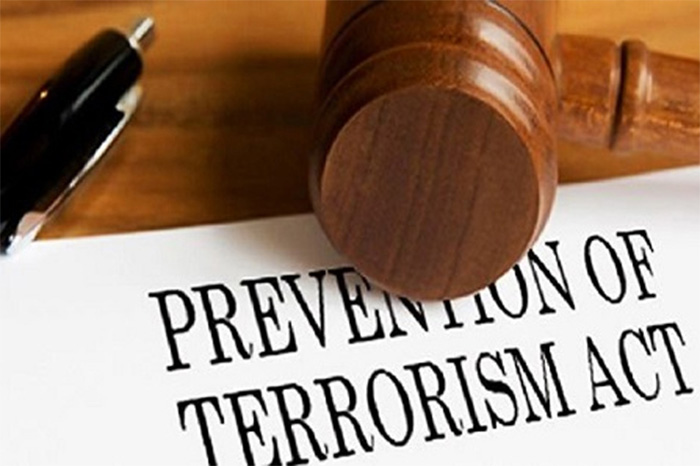
The Coalition against the Repressive Laws (CARL) which comprise more than 60 civil society, media, trade unions and professional associations, has, in a letter to President Anura Kumara Dissanayake, called upon the government to abolish the Prevention of Terrorism Act, Online Safety Act, and other repressive laws that undermine fundamental rights of all Sri Lankans.
The CARL members also stressed that they are mindful that the NPP and the JVP have historically opposed such laws and consistently championed their repeal. The PTA remains widely recognized as a draconian law that must be repealed immediately, and its continued use represents a significant deviation from the positions previously upheld by both the NPP and the JVP.
In addition to the PTA, the CARL also strongly appeals for the immediate repeal of the Online Safety Act, another repressive law that severely undermines freedom of expression.
The full text of the letter:
We are a coalition comprising 60 civil organizations, media groups, trade unions, and professionals united in opposition to repressive laws. Over the past two years, and indeed for many years before, our coalition has, collectively and individually, advocated for the repeal of laws that undermine fundamental rights and freedoms.
We are mindful that the National People’s Power (NPP) and the Janatha Vimukthi Peramuna (JVP) have historically opposed such laws and consistently championed their repeal. Your party has maintained this principled stance. And it was expected moves would be made to repeal such laws, especially the most draconian Prevention of Terrorism Act (PTA), after your election as President and the assumption of power by the NPP-led government.
The continued use of provisions under the PTA to detain individuals is therefore deeply troubling. These detentions are often followed by charges filed under alternative legal frameworks. The PTA remains widely recognized as a draconian law that must be repealed immediately, and its continued use represents a significant deviation from the positions previously upheld by both the NPP and the JVP.
We urge you, as President, and your government to take immediate action to repeal the Prevention of Terrorism Act in accordance with your long standing commitments.
In addition to the PTA, we also strongly appeal for the immediate repeal of the Online Safety Act, another repressive law that severely undermines freedom of expression. Although presented under the pretext of safeguarding online space, this Act was hastily passed by the previous government despite strong opposition from various stakeholders. It is evident that the primary objective of this legislation was to stifle dissent—a concern repeatedly emphasized by both you and your party.
The repeal of these repressive laws would not only demonstrate your commitment to fulfilling electoral promises but also reaffirm the government’s dedication to upholding democracy and protecting human rights. Moreover, it would serve as a clear signal of your administration’s resolve to respect transparency and the principles of good governance.
We, therefore, reiterate our demand for the immediate repeal of both the Prevention of Terrorism Act and the Online Safety Act. Moving forward, we strongly urge that all legislative processes be conducted in a democratic, transparent, and consultative manner, setting a standard of accountability and responsible governance.
News
President announces PAYE tax reductions
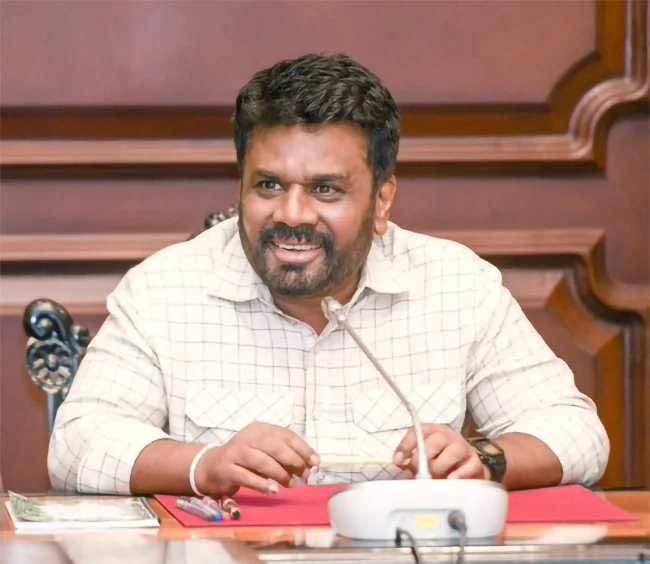
Imputed rental tax to be implemented in 2025
Withholding tax increased from 5% to 10%
President Anura Kumara Dissanayake yesterday told Parliament that the PAYE tax threshold be increased from Rs. 100,000 to Rs. 150,000.
“We held discussions with the IMF and were able to raise the tax threshold from Rs. 100,000 to Rs. 150,000 per month,” President Dissanayake said.
President Dissanayake said that the Withholding Tax would be increased from 5% to 10% and tax on services exports would be reduced to 15% from 30%.
The President said: “During the initiation of the third review, we decided to reduce the burden of the Pay-As-You-Earn (PAYE) tax imposed on professionals in our country. There was significant dissatisfaction regarding this tax among professionals such as university academics, doctors, and bank officials.
Following discussions, we were able to increase the tax-free threshold from LKR 100,000 to LKR 150,000. Additionally, the first band of the Personal Income Tax (PIT), taxed at 6%, was extended from LKR 600,000 to LKR 01 million. Accordingly:
• An individual earning a monthly income of LKR 150,000 pays zero tax.
• An individual earning LKR 200,000 is exempted from 71% of the tax they would have otherwise paid.
• An individual earning LKR 250,000 is exempted from 61% of the tax.
• An individual earning LKR 300,000 is exempted from 47% of the tax.
• An individual earning LKR 350,000 is exempted from 25.5% of the tax.
What does this mean? We have successfully provided greater relief to lower-income earners while offering reduced benefits to higher-income earners, achieving a fair and balanced outcome through this review.”
“Immediately after the conclusion of the general election, on 16 Nov., we began the third review discussions with the IMF. During the second review, several preconditions and agreements were reached by the previous government. One such agreement was the imposition of an imputed rental income tax, which is scheduled to be implemented in 2025, as agreed upon during the second review,” the President said, adding that vehicle imports would resume on 01 Feb. 2025, and that would be carried out under a structured programme.
The President said the government would resume vehicle imports in three stages.
The import of buses used for passenger transport and vehicles used for special services had begun on 14 Dec., 2024, he said, stressing that Sri Lanka would not face a foreign exchange crisis due to this decision.
“Through lengthy discussions with the Central Bank, the government has estimated the amount of dollars that would be spent due to the importing of vehicles and the impact on the economy. In order to strengthen our economy, we must reopen vehicle imports,” he added.
The President said the suspension of the parate execution law had been extended until March 2025.
The law was previously set to remain suspended until 15 December, 2025, following a conditional approval of the Committee on Public Finance (COPF) under the previous Government.
President Dissanayake said the decision to extend the suspension of parate executions by three and a half months had been made following concerns raised by Sri Lanka’s banks, regulators, and small and medium enterprises (SMEs) about challenges in loan repayment and the impact of the law on struggling businesses.
However, he cautioned that such action could have an adverse impact on banks and financial institutions, stressing the need to balance support for SMEs while protecting the banking system.
President Dissanayake said that the total outstanding debt currently stands at Rs. 1,385 billion, involving 752,886 debtors. Of these, 99% are defaulters with loans of less than Rs. 25 million, he said.
“Defaulters who have loans below Rs. 25 million will be given an opportunity to restructure their debt until 12 December, 2025. They must present a debt restructuring plan to their banks by March,” the President said.
News
Sajith tables his educational qualifications in Parliament
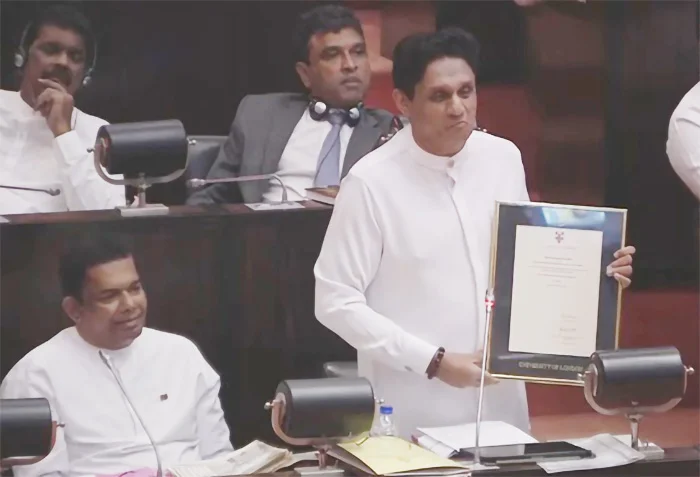
SJB and Opposition Leader Sajith Premadasa yesterday tabled his academic qualifications in Parliament, following a challenge issued by Chief Government Whip and Minister Dr. Nalinda Jayatissa.
Premadasa, in a detailed response, presented all his educational certificates.
Premadasa said: “I did not sit the GCE Ordinary Level Examination in Sri Lanka, as I left the country, after Grade 9. Instead, I pursued my education in the UK, where I successfully completed my O-Levels and A-Levels,” Premadasa said, adding that he had obtained his first degree from the University of London but he had to return to Sri Lanka in 1993 following his father’s assassination. “I had to cut short my Master’s degree at that point, but later, I pursued further studies at the University of Maryland, College Park, in the United States, where I earned a Master’s in Public Management,” Premadasa stated. He also revealed that he had completed a degree at the Open University of Sri Lanka, where Prime Minister Harini Amarasuriya was one of his lecturers.
News
South Asia’s geoeconomic vulnerability, trade challenges highlighted in latest WB report
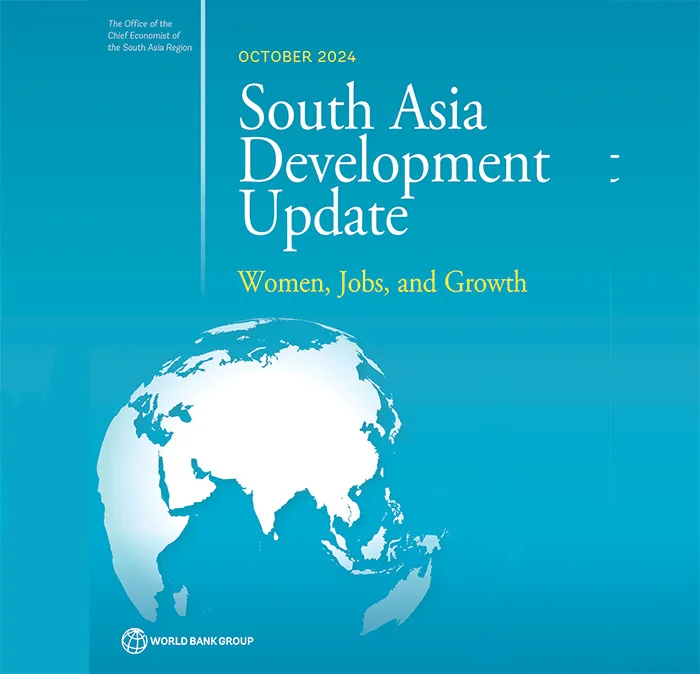
The World Bank’s latest South Asia Development Update raises important questions about the region’s vulnerability to geopolitical risks and its ability to adapt to the shifting global economic landscape. As the global economy fragments along geopolitical lines, South Asian countries face complex challenges as they attempt to navigate these divisions while also positioning themselves to benefit from the reshaping of global value chains.
The report notes that many emerging market and developing economies (EMDEs), including those in South Asia, are grappling with the economic fallout of geopolitical fragmentation. As countries increasingly realign along political and economic lines, the ability of South Asia to remain resilient to external shocks, including trade disruptions and geopolitical tensions, has become a key concern.
According to the World Bank, South Asian countries’ geopolitical stances, as reflected by their voting patterns in the United Nations, generally align more closely with China than with the United States or Europe—the region’s primary export destinations and largest foreign direct investment (FDI) sources. This alignment places South Asia in a unique position as global power dynamics shift, particularly in light of growing tensions between major geopolitical players.
However, the report also emphasizes that South Asia’s relative insulation from external geopolitical risks is partly due to the region’s lack of openness to global trade and investment. South Asian countries are among the most closed economies in the EMDE group, ranking in the bottom quartile for global trade and FDI openness. While this insularity provides some protection from external shocks, it also limits the region’s capacity to leverage geopolitical diversity and capitalize on the transformation of global supply chains.
While South Asia’s economic ties are becoming more geopolitically diversified, this shift has not been fully translated into economic benefits due to the region’s restrictive trade policies. Countries like India, Pakistan, Sri Lanka, and Bhutan have expanded their export markets and FDI sources, increasing their geopolitical diversity since 2016. Despite this, the World Bank points out that these countries’ economic openness remains constrained, preventing them from fully realizing the potential advantages of their diversified international relationships.
The South Asia Development Update suggests that South Asian countries could significantly boost their economic performance if they reduced trade barriers, eased FDI restrictions, and invested in infrastructure and logistics. These steps would not only enhance trade connections but also help mitigate vulnerabilities to external shocks, whether geopolitical or economic.
To fully capitalize on their diverse geopolitical ties, the World Bank advocates for a series of policy reforms. These include lowering import tariffs, easing restrictions on foreign investment, improving infrastructure, and deepening financial markets. The report further suggests that South Asia should actively engage in a wide range of trade agreements to maintain a diverse set of trading partners and creditors, which could act as a buffer against potential geopolitical risks.
The potential gains from these reforms are substantial. According to the World Bank’s cross-country analysis, if South Asian countries were to adopt the best practices seen in high-performing EMDEs—such as improving logistics performance and reducing tariffs—there is potential for the region’s export connectedness to match that of Malaysia and Indonesia, two countries that are often cited as models of trade openness and economic integration.
The World Bank’s report underscores that while South Asia faces significant geopolitical risks, the region’s current economic policies are limiting its ability to take advantage of the evolving global trade environment. By fostering greater openness to international trade and investment, South Asian countries could better position themselves to thrive amidst the diversifying global value chains and mitigate the risks associated with geopolitical fragmentation.
For policymakers in the region, the key takeaway is clear: embracing economic openness and strengthening trade and investment ties with a broader set of global partners could unlock considerable growth potential for South Asia.
-

 Opinion3 days ago
Opinion3 days agoDegree is not a title!
-
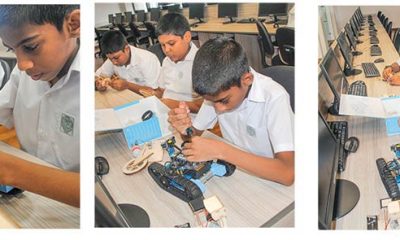
 Features6 days ago
Features6 days agoEmpowering the next generation: St. Benedict’s College brings STEM education to life
-
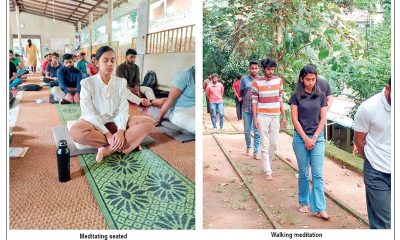
 Features4 days ago
Features4 days agoSpiritual Awakening of a Village
-

 News5 days ago
News5 days agoOver 300,000 Sri Lankans leave for overseas jobs this year
-
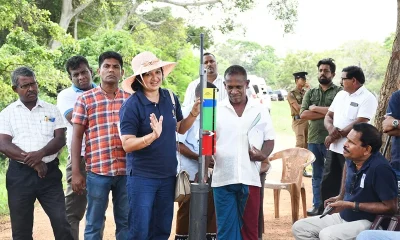
 News2 days ago
News2 days agoInnovative water management techniques revolutionising paddy cultivation in Lanka
-

 Latest News5 days ago
Latest News5 days agoIndia’s Gukesh beats China’s Ding to become youngest chess world champion
-
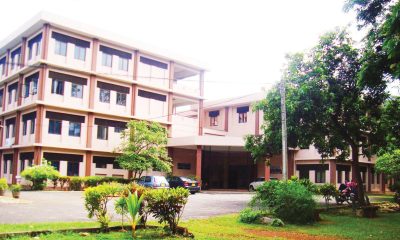
 Features4 days ago
Features4 days agoRevisiting the role of education in shaping shared futures
-
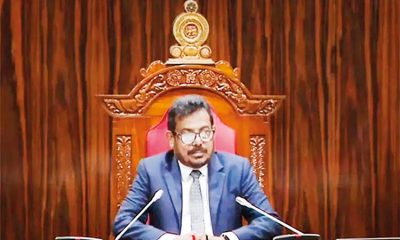
 Features4 days ago
Features4 days agoThe Silence of the Speaker and other matters











